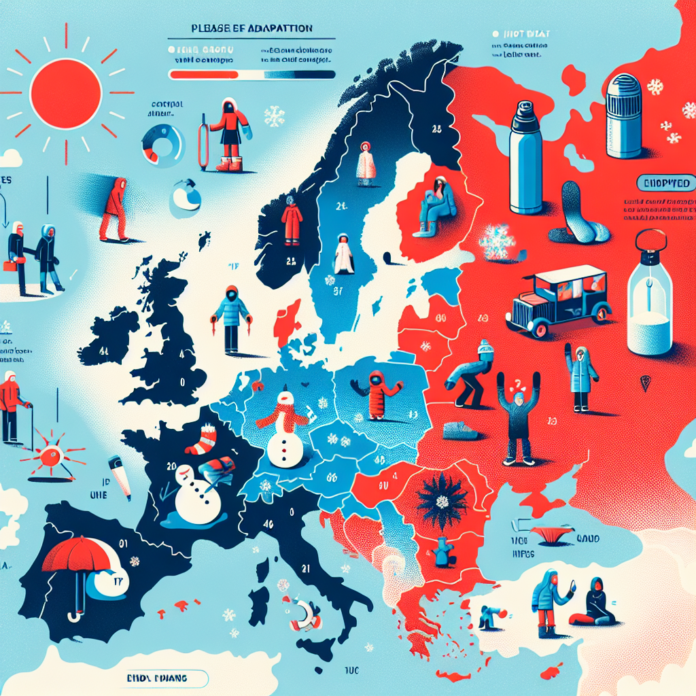Europeans Adjusting Better to Cold Than Heat
Europe’s Population Adapting Better to Cold Than Heat, Study Reveals
Recent research has highlighted that Europe’s population is showing a greater capacity to adapt to cold temperatures compared to heat. This finding raises important questions about climate change and its impacts on human health and well-being across the continent.
Study Overview
The study, conducted by a team of environmental scientists and public health researchers, analyzed data from various regions across Europe. It focused on how different populations respond to extreme weather conditions, particularly cold snaps and heatwaves. The results revealed that while Europeans have developed various coping mechanisms for cold weather, such as heating systems and appropriate clothing, they are less equipped to handle prolonged periods of excessive heat.
Health Implications of Climate Change
The implications of this study are significant, especially in light of ongoing climate change. As global temperatures rise, heatwaves are becoming more frequent and intense, posing serious health risks such as heat exhaustion, heatstroke, and exacerbation of existing health conditions like cardiovascular and respiratory diseases. In contrast, cold weather tends to provoke more immediate responses, such as increased hospital visits for hypothermia and frostbite, but people are generally more resilient to these conditions.
Adaptation Strategies
To better prepare for the challenges posed by climate change, researchers suggest that more emphasis should be placed on developing effective strategies for heat adaptation. This includes implementing urban design changes, such as increasing green spaces to provide shade, enhancing building insulation, and improving public health messaging to educate communities about the risks of heat exposure.
Population Vulnerability
Moreover, certain populations are more vulnerable to heat-related illnesses, including the elderly, those with pre-existing health conditions, and low-income communities lacking access to cooling resources. Addressing these disparities is crucial for ensuring that all members of society can effectively cope with rising temperatures.
Conclusion
Overall, the findings of this study underscore the need for a comprehensive approach to public health planning in the face of climate change. By understanding how populations adapt to cold versus heat, policymakers can better allocate resources, implement effective interventions, and ultimately safeguard public health as Europe faces an increasingly unpredictable climate.
As we move forward, it is essential to continue researching how climate change will affect human adaptation and to develop innovative solutions that can help mitigate its impacts on vulnerable populations.


